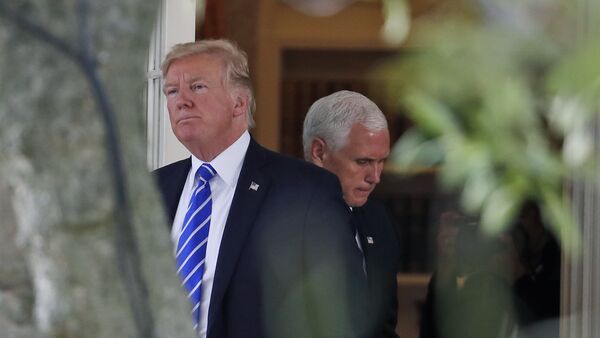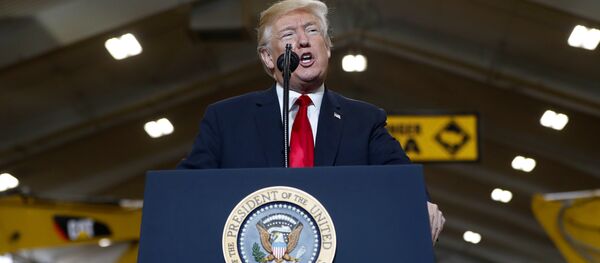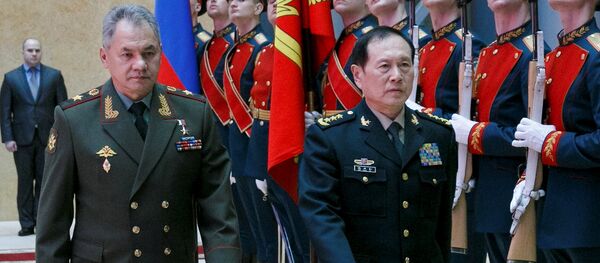The development of relations between China and Latin America is by no means aimed against other countries and the US, in particular, Jiang Shixue, the head of the Center for Latin American Studies at Shanghai University, told Sputnik China.
"Economic experts from the World Bank, the Organisation for Economic Cooperation and Development [OECD], United Nations Economic Commission for Latin America and the Caribbean and other international organizations believe that the development of economic cooperation between China and Latin America facilitates the economic development of the countries of the region," Jiang highlighted.
Washington is seriously concerned about China's growing influence in Latin America. On the eve of the Summit of the Americas in Lima, Peru, reports emerged saying that US President Donald Trump would seek to urge the countries of South America to turn their backs on China and bolster their trade and cooperation with the US.
Later, on April 10, the Trump administration announced that Trump had canceled his visit to the summit and would send Vice President Mike Pence instead.
For his part, China's ambassador to Peru, Jia Guide, warned the US against demonstrating "contempt not just for China but also Latin America." He refuted the claims that Beijing is interfering in Latin America's domestic affairs and cited the fact that China's trade with the countries of the region had increased by 18.8 percent to about $260 billion in 2017.
"China has become the biggest or the second-biggest trade partner for a majority of Latin American countries," Jia highlighted.
The Chinese scholar pointed out that the US fears that China's military ties with South American states could somehow affect the security of the Western Hemisphere. Washington is also concerned that Beijing may support left-wing forces in the continent and undermine US relations with its neighbors. However, all these fears are obviously exaggerated, Jiang underscored.
However, Boris Martynov, deputy director of the Institute for Latin American Studies, at the Russian Academy of Sciences, believes that Washington's fears are in some sense justified. The Russian academic added that in any case, the US political establishment should blame itself for the chill between North and South America.
"China ranks first in trade with countries such as Brazil, Chile, Peru, second place in trade with Argentina, and is rapidly increasing its trade, economic and investment presence in Latin America," Martynov told Sputnik, adding that the US attempts to revive its influence and blackmail their neighbors have proven futile.
According to the Russian academic, the reason behind the current deadlock is an absent long-term foreign policy strategy in the US: "This is the result of business entering big politics, while professionalism in American diplomacy has long been gone," he opined.
"There are elements of short-term business [tactics] with the use of threats and blackmail," the academic explained. "For example, on the eve of the Summit of the Americas, the US undertook to teach China how to behave in Latin America."
Meanwhile, it was reported that US Trade Representative Robert Lighthizer had canceled his participation in the upcoming summit. This means that Mexican Minister of Economy Ildefonso Guajardo and Canadian Foreign Minister Chrystia Freeland — the two representatives of the NAFTA countries — will hold a meeting in Lima without him.
According to White House officials, Pence is likely to meet separately with four leaders of major economies of the region — Argentina, Colombia, Chile and Peru. However, it appears that the vice president is not going to hold talks with Mexican President Enrique Pena Nieto. According to media sources, Nieto's frustration over the Trump administration's political course toward Mexico is growing.
The views and opinions expressed by the speakers do not necessarily reflect those of Sputnik.




